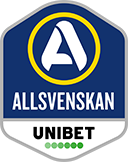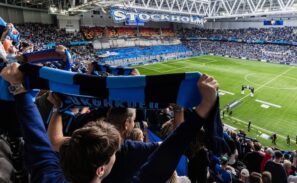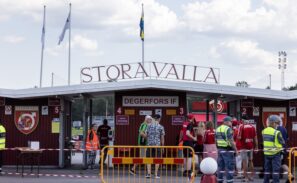The upcoming season is approaching. Allsvenskan celebrates 100 years, and the interest for Swedish football is setting new records. At the same time, we have a year behind us with more disturbances than in a long time in Swedish football, and this cannot continue.
“We look forward to this year’s premieres and the festivities that Allsvenskan and Superettan bring. But everyone must take responsibility to ensure that it becomes a celebration. Together with the clubs, we have worked to strengthen security measures to address the challenges we face and create a more secure and safe environment in our arenas,” says Johan Lindvall, Secretary-General of Swedish Professional Football Leagues.
Despite record attendance and world-class tifos, the 2023 season also saw a significant increase in disturbances at Allsvenskan and Superettan arenas. Ahead of the 2024 season, Swedish Professional Football Leagues, together with the clubs, the Swedish Football Association (SvFF), authorities, and the Swedish Football Supporters’ Union (SFSU), have engaged in dialogue to take measures to improve the environment at Allsvenskan and Superettan arenas.
We are working broadly in several areas. One change to be implemented is converting current guidelines regarding bangers, pyrotechnics, and thrown objects into directives in the specific competition regulations for Allsvenskan and Superettan (STB) 2024.
“We believe that we need to make our working methods clearer for the organizer, where we may not have fully succeeded before. Transforming our guidelines into directives ensures a uniform approach at all arenas, and the clubs’ actions become more predictable for the audience,” says Per Eliasson, responsible for security at Swedish Professional Football Leagues, and continues.
“There has been a debate about possibly evacuating stands. The change we are making now does not regulate anything specific about that. But we create a unified framework for how the clubs should act in case of disturbances. The club, as the organizer, always bears the responsibility for event security and, with the support of delegates and the police, makes decisions about measures.
The exclusion strategy will still be central, meaning that individuals committing crimes at the arenas will be identified, prosecuted, and banned. The transition from guidelines to directives means that security work becomes more consistent and predictable when disturbances occur.
“In addition to the mentioned change, we are also working on a range of measures to enhance security and shell protection at the arenas. Measures may include rebuilding to minimize the risks of thrown objects and the introduction of pyrotechnics, as well as expanded and improved camera technology,” says Per Eliasson.
“We welcome the open letter that the ultras groups of the clubs released; it is a step in the right direction, but we want to be clear that it is not enough. We want to be able to defend the exclusion strategy and work to ensure that our stands can continue to be an open and safe place with a fantastic supporter culture. If we are to succeed, we must do it together,” says Johan Lindvall.
Meetings between Swedish Professional Football Leagues and the government, authorities, and the police will continue in the spring. In parallel, a cultural work is underway between the league and the clubs.
“What we are presenting now is part of a whole. We work in several different areas, and more measures will come. For example, we are currently working with our clubs on values and signaling values, which is equally important. This work is long-term; change takes time. This is one step of many that we will take during the season,” says Johan Lindvall.
With less than a month left until the start of Allsvenskan and Superettan, the hope is that everyone involved takes responsibility for their own behavior, and the premieres are filled with the joy, song, and tifos that Swedish football has been proud of for many years.
“I am convinced that it is possible to create an atmosphere of the utmost world-class without disturbances or illegal elements,” concludes Johan Lindvall.
















